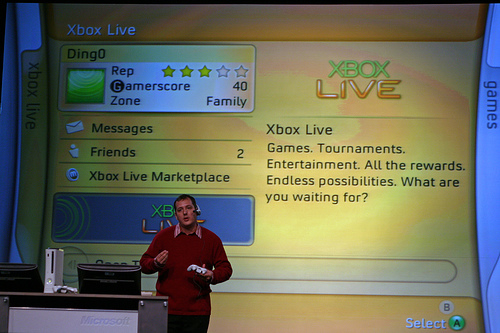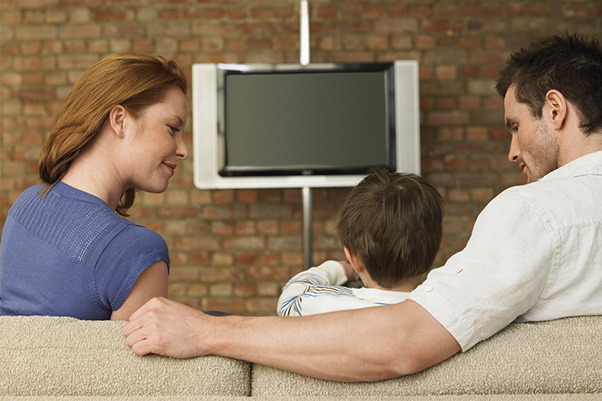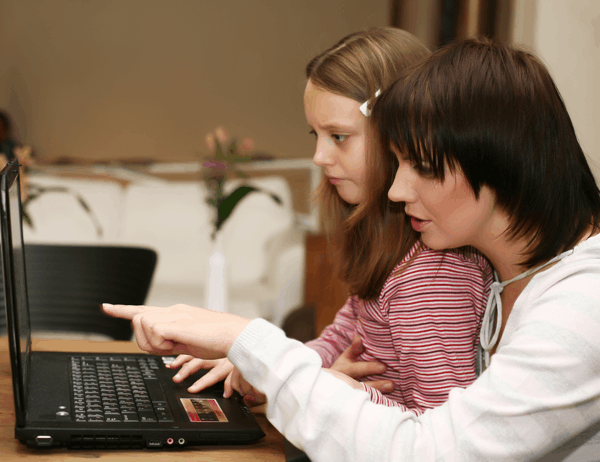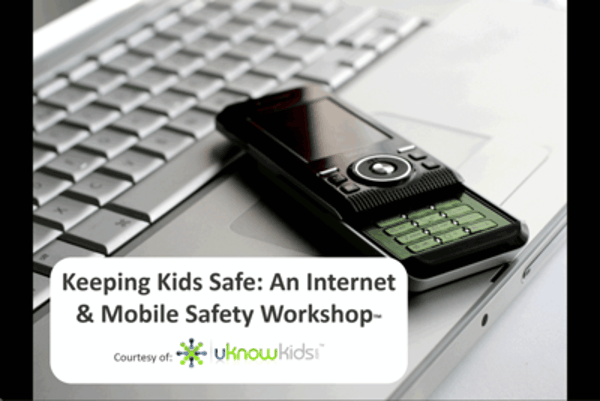The onslaught of digital duress may be stripping back the fabric of your family. It is no secret that in this age of digital everything, digital parenting has leapfrogged over so many other more traditional means of parenting. Although digital parenting is a necessary adaptation, it's important for families to strengthen communication before technology.
Read More »Sexting Is Just the Beginning
With the relatively new ability to send images and videos through technology, people of all ages are taking advantage of this ability to connect to others. Unfortunately, it has also led to the evolution of “sexting.” While this is legal for adults (but still risky), it is not for minors and can have serious consequences on a minor’s emotional state, not to mention their professional and academic future.
Depending on the minor, the situation in which the sexting occurs, and how it is handled, the ramifications can vary greatly. However, it almost always leads to some negative effects for the teen.
What It Can Lead To
While parents may be aware of certain repercussions of sexting, there are a wide variety of consequences that even the most conscientious parents may not be aware of. Regrettably, it can lead to the following negative effects:Digital Parenting: 11 Facts About Cyberbullying
Cyberbullying is defined as a young person tormenting, threatening, harassing, or embarrassing another young person using the Internet or other technologies, like cell phones. The psychological and emotional outcomes of cyberbullying are similar to those of real-life bullying. The difference is, real-life bullying often ends when school ends. For cyberbullying, there is no escape. And, it’s getting worse. Read on to get the facts.
Is My Child Watching Pornography Online?
When we think of people who are consumers of online porn, we automatically picture grown adults. However, with access to pornographic sites becoming increasingly widespread, a large number of tweens and teens are believed to have viewed some kind of online porn.
How Many Children Are Watching Porn?
Today, it's reported that at least 90 percent of kids between the ages of 8 and 16 have watched pornography online at least once. Not only have most tweens and teens seen porn, but boys ages 12 to 17 are actually the largest consumers of online pornography. With this statistic, pornography has even been compared to being the drug of choice for youth.
Read More »6 Requirements for Managing Peer Pressure Among Kids/Teens
Peer pressure can be extremely hard to deal with for kids and teens. It becomes increasingly difficult without the support of their parents. When it comes to managing peer pressure among kids/teens, there are things that you should do, and things that you must do. Here are six such "musts" for dealing with peer pressure:
-
Talk to your child about the dangers of drugs, alcohol and sex: Talking to your child opens up a dialogue that can be very important. If your child feels safe discussing these difficult topics with you, there is a greater chance that they will come to you if they are curious about trying them.
10 Things Parents Need to Know About Xbox LIVE and Kids Safety
Xbox LIVE is the online service for the Xbox 360. With a paid gold membership and a set of headphones, your child can play online with a community of 40 million other users worldwide.
This can be seriously awesome for the gaming enthusiast in your house, but there are 10 important things parents should know about Xbox LIVE and keeping kids safe before setting it up for their child.
-
It's more than just a gaming site. Xbox LIVE users can also chat with each other, send and receive friend requests, and share their profile and gaming stats.
Teaching Children About Internet Security Right From The Start
There is never a time too early in the life of a child to start thinking about Internet security. Children of younger and younger ages are starting to get a glimpse into the world of the Internet, and many are potentially at risk if they are not informed of what they should and should not do.
Have A Conversation
Before you ever get into the technical aspects of what you can do to keep your child safe online, it is a good idea to simply have a conversation with them. You can explain to them the steps to take if they are confronted by someone online that they do not know.
Read More »Long Term Effects Of Bullying On The Victim
Bullying has often been considered as something that some children experience at some point in their lives. However, with the Internet and smartphones, bullying has been elevated to an extremely sophisticated type of social harassment. New studies are showing that bullying can have negative effects that last long into adulthood.
Loss of Confidence
A single act of bullying can cause diminished self-esteem that can last a lifetime. A child who is bullied feels powerless and their self-identity as a competent person who is able to protect himself in the world becomes wounded.
Read More »How To Approach Punishing Your Teen For a Digital Slip-Up
From catching your teen sexting, to finding out that they violated your phone contract, digital slip-ups are never fun to deal with. It is not surprising that teens and parents often experience power struggles over digital rules and privileges. Teens are often given such high responsibility with technology at such young ages, that it is natural that there are going to be some problems. Digital rule-breaking is still a relatively new avenue of parenting that requires specific attention and action.
Read More »5 Tips for Mobile and Internet Child Safety
Children now spend more time with the media via Internet and mobile technology than they do with their family, in school, or sleeping.
A nationwide survey conducted by the Kaiser Family Foundation found that in just five years, media use has increased from 6 ½ to nearly 7 ½ hours a day in children between the ages of 8 and 18. As if this weren’t frightening enough, children also tend to be master multitaskers, using as many as three technological tools at once to browse through their digital lives.
Read More »The Educational Impact of Bullying and Cyberbullying
Parents, educators, and lawmakers everywhere are worried about the impact of bullying and cyberbullying on our kids. The impact on every aspect of a child's life can be far reaching. With the digital age, many kids don't just have to worry about being bullied in the schoolyard. Instead, with the technology available today, bullies can reach our kids at school, after school, and even in their own bedrooms. With smart phones, computers, tablets, and cell phones, bullies are able to reach into a child's life and affect every aspect of it. Bullying and cyberbullying are no longer a simple matter of standing up to the bully and having a face-off. It's no longer a simple matter.
The Pros and Cons of Xbox: Is Xbox Good for Kids?
Many parents today are wondering if Xbox is good for kids, and while there is much debate about this topic, the findings tend to show there may be more cons than pros when it comes to kids playing the popular video game system. With complaints that this kind of gaming leaves kids too isolated from others to concerns over damaged vision from staring at the screen, parents and educators everywhere are very wary of the potential negative effects.
Yet, there are positive effects that can come from playing Xbox and Xbox Live. Xbox Live is a feature of Xbox which enables the player to game online against their friends or other people. Both Xbox and Xbox Live can have plenty of positive and negative impacts on kids.
Pros
Some of the most common positive effects of playing video games include that Xbox:
-
Increases self-confidence
Teaching Kids and Teens Media Smarts During Breaking News
With constant breaking news streaming in through media outlets and social networks, kids and teens need to know how to digest and decipher news reports. Teach them the basics of how to filter out what is accurate and important in the news world. We found a fabulous article on the subject originally published on Common Sense Media and written by Sierra Filucci. Please check it out.
When big news breaks, it's easy to get caught up in following the news online. But while the Internet -- from major news sites to Twitter -- can be a valuable place to find useful information, it can also be the source of misinformation. Helping kids and teens understand the news and how to separate fact from fiction is an important job for parents and educators.
Here's some advice parents can offer kids and teens who consume the news:
Remember, breaking news is often wrong. In the rush to cover stories, reporters make mistakes, officials don't always have correct information, and tidbits that sound plausible often get passed around before anyone can check for accuracy. One Texas TV station reported through closed captioning that Zooey Deschanel was one of the accused Boston Marathon bombers!
Read More »Digital Parenting is Important for Teens, Whether They Like it Or Not
Digital parenting is one of those topics that can make families uncomfortable. No teenager wants to feel like Mom and Dad are sticking their noses into his or her personal business, and no parent wants to keep their kids from making the most of the advantages the internet can provide.
It’s important to know what your kids are doing on the internet: it can be a tremendous tool for school and for social interaction. It also opens them up to a whole range of possible dangers including cyberbullying, child predators, and inappropriate content. How do parents keep their kids from undue risk without stifling their independence?
Read More »Mobile and Internet Child Safety: The Role Of The Schools
Educating children is the role of any school, public or private. They are supposed to teach them about the ways of the world and make them more prepared to join the workforce when they have completed their education.
There is always a question of exactly what the schools are responsible for teaching children and what should be left to their parents. Mobile and Internet child safety is becoming more and more on the shoulders of the schools to help out with teaching.
Mobile Phones At An Early Age
Read More »Digital Parenting: Keeping Children Safe From Online Dangers
Any sensible parent is going to keep their child safe from dangers that present themselves in the real world. This same sense of concern should extend to dangers that present themselves in the online world. Digital parenting is as important as parenting against dangers in the real world.
Read More »Prom Night Digital Decorum: Preventing Teens From Oversharing
Prom is a very exciting event for most teens who have finally reached the age of being able to attend this important milestone. While in the past students and their guests were limited in communicating about prom, present day social media has created a whole new form of communication for them to let others know about their plans and activities in real time. This, of course, has its pros and cons.
While sending texts to friends to coordinate meeting times or showing pictures can be reasonably safe, using social media can be problematic when it comes to safety and security.
Read More »Establishing That the Internet is a Privilege, Not a Right
Something that parents need to establish with their children early is that using the Internet is a privilege, not a right. This is important because if kids get too accustomed to and reliant on the Internet, it will be harder to end their privilege to it if they go against the rules.
In order to practice digital parenting, there has to be set rules that children understand and abide by. These rules vary on a case-by-case basis, but they should require open conversation between children and their parents concerning their activity on the Internet. When the rules are set, parents have to be ready to remove the Internet privilege if their child breaks the rules. It's not just to keep children safe from cyber threats, but also a life-long lesson that they can't take shortcuts and cheat the system.
Read More »You're Invited: The Internet & Mobile Safety Workshop for Parents
Today’s children represent the first generation to grow up entirely in a digital world. They have spent their entire lives using computers, video games, webcams, digital music players, mobile phones, instant messaging apps and everything else the digital world has to offer. In a sense, our kids are all “native speakers” of a digital language.
They are "Digital Natives". So what does that make this generation of parents?
Those of us who were not born into a digital world are, and always will be, "Digital Immigrants" and we are now in the process of learning a new language while also trying to raise our kids and keep them safe.
Read More »If Your Kids Use iPhones or iPads, Help Has Arrived: uKnowKids for Apple
In the past few years, iPhone and iPad usage with kids has expanded tenfold. In order to keep up with these changes, uKnowKids is launching a new product specifically designed to help parents whose kids are using iPhone, iPads, iTouches and Macs. It is called the uKnowKids for Apple, and we plan to launch it into public beta in April.
Big iPhone and iPad News
You can pre-order to get early access to the uKnowKids for Apple today!
Note... We are still working on a final name the product, so "uKnowKids for Apple" may go through a name change in the next few weeks or months, but you get the idea :)
With the uKnowKids for Apple, parents can gain dramatically better transparency into your child's iPhone activities than any other solution on the market today. Let's take a look at some of the new features.
View iMessages (Text Messages & Picture Messages):
We all know that keeping tabs on text and picture messages is helpful for parents who are trying to educate and coach their kids on how to use technology safely and responsibly. With the uKnowKids for Apple, parents are able to view their teen's incoming and outgoing iOS text messages (SMS) and picture messages (MMS)... iMessages... via their iPhones, iPads, iTouches, and Mac computers. Additionally, the feature enables uKnowKids customers to review stored photos. Keeping an eye on these interactions can help parents ensure that new phone users aren't getting involved in peer pressure, sexting or other digital dangers.
Read More »




















